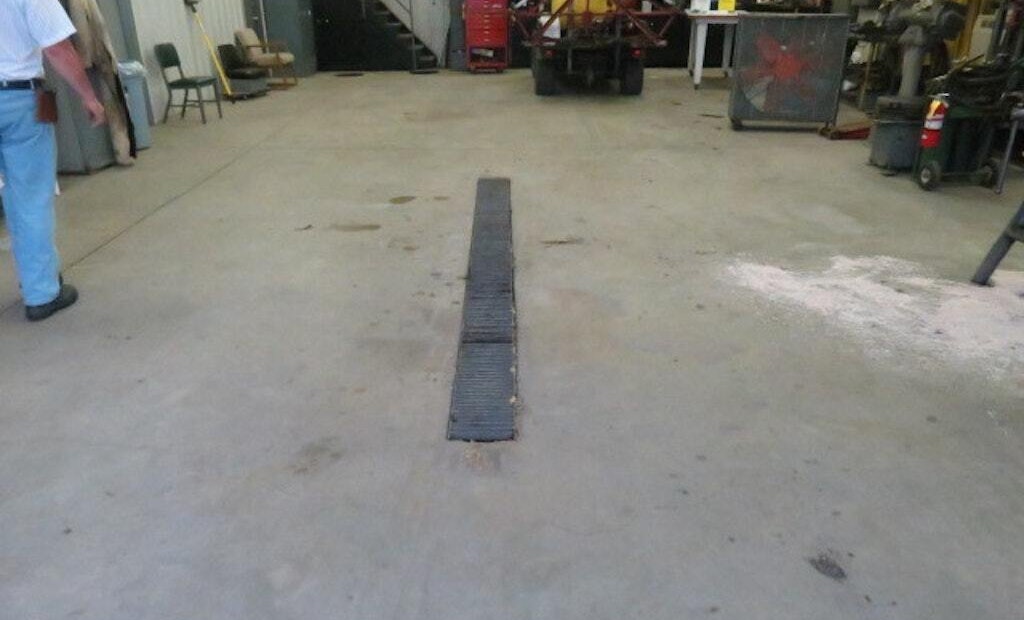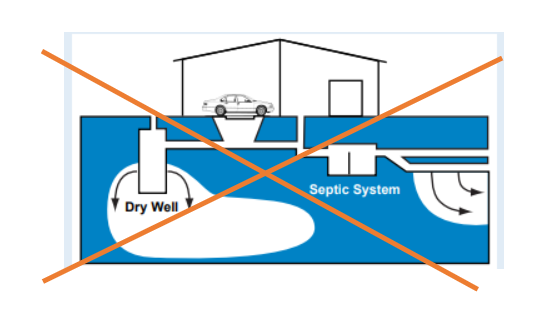Interested in Plumbing?
Get Plumbing articles, news and videos right in your inbox! Sign up now.
Plumbing + Get AlertsIndustrial wastewater is the water or liquid-carried waste from an industrial process resulting from manufacturing, trade, automotive repair, vehicle wash, or other business or medical activity that may contain toxic or hazardous constituents. In general, there are separate regulations in most states about how to handle and treat industrial wastewater.
Garage floor drains at residences sometimes fall between the cracks and questions arise as to the proper methods to deal with this wastewater. Liquid wastes from garages serving single and multifamily homes can consist of the following:
- Precipitation draining from vehicles and liquids from vehicle washing
- Spills from materials stored or used in the garage such as: thinners, solvents, paints, pesticides, cleaners, etc.
- Liquids from vehicle repair such as gasoline, used oil, antifreeze, etc.
- Solid material that falls off of the vehicle
Therefore, there is a potential for hazardous waste and other damaging waste entering the floor drain system. Discharge directly into the soil or into a septic system is prohibited under EPA Class V rules for regulated business but is not good practice for any garage floor drain due to risk for contamination. Always check with local units of government for specific requirements. The following list is provided in preferential order of how to handle liquid wastes from private garages:
Option #1: Do not install floor drains in new constructions of private garages; instead, slope the floor to the doors. For existing garages, seal the drain to prevent further discharge.
Option #2: If a floor drain is desired, the floor drain may discharge to the homeowner’s lawn surface if approved by the administrative authority. The discharge area should be visible and should not drain or convey runoff directly to storm drains or ditches. The good housekeeping practices described below should be followed.
Do not:
- direct the floor drain waste to a street, ditch or water body
- connect to sewer lines of homes served by a septic system
- allow the floor drain to “deadhead” into the soil
Good housekeeping:
- Care should be taken that hazardous or other damaging waste does not come in contact with the garage floor. Any hazardous or other damaging waste reaching the garage floor must be absorbed and disposed of at a household hazardous waste facility. No hazardous or other damaging waste should be discharged to daylight via a floor drain or sloped floor, or to a floor drain connected to sanitary sewer. All used oil must be recycled.
- Homeowners have the duty to avoid and mitigate pollution from any of the preferred disposal options. Any nonhazardous, nondamaging liquid waste discharged to daylight via a floor drain or sloped floor must not create a nuisance condition or contaminate storm water runoff
- If a floor drain remains in the garage, it is recommended that a permanent sign or plate be placed on or within view of the drain stating, “WARNING – Water Only! Floor drain leads to our water supplies.”
About the author: Sara Heger, Ph.D., is a researcher and educator in the Onsite Sewage Treatment Program in the Water Resources Center at the University of Minnesota, where she also earned her degrees in agricultural and biosystems engineering and water resource science. She presents at many local and national training events regarding the design, installation and management of septic systems and related research. Heger is the President of the National Onsite Wastewater Recycling Association and she serves on the NSF International Committee on Wastewater Treatment Systems. Ask Heger questions about septic system design, installation, maintenance and operation by sending an email to kim.peterson@colepublishing.com.







